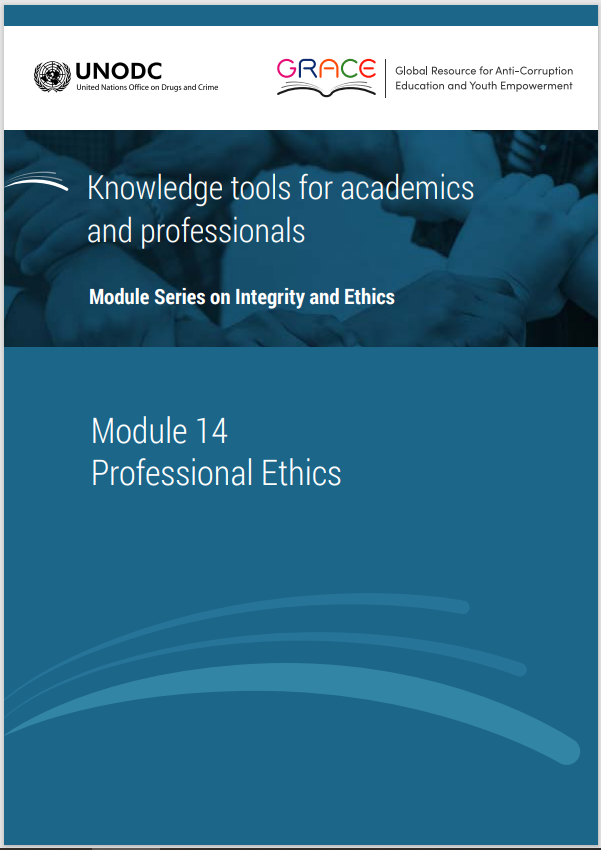This module is a resource for lecturers
Guidelines to develop a stand-alone course
This Module provides an outline for a three-hour class, but there is potential to develop its topics further into a stand-alone course. The scope and structure of such a course will be determined by the specific needs of each context, but a possible structure is presented here as a suggestion.
|
Session |
Topic |
Brief description |
|
1 |
Module introduction |
Introduce Module themes and assessment methodology. Explore student familiarity with professional ethics. Review the definition of professional ethics, the role of professional ethics in society, and why students should study professional ethics, in their field and in other fields. |
|
2 |
Ethical foundations |
Review the field of ethics and basic concepts and terminology used in the Module. |
|
3 |
Personal, theoretical, & professional ethics |
Expose students to the important distinction between personal, theoretical, and professional ethics. |
|
4 |
Ethical decision-making |
Review and critique models for ethical decision-making and their respective roles in personal and professional ethics. |
|
5 |
Role morality: introduction |
Introduce students to the concept of role morality and the potential ethical dilemmas raised by conflicts between professional and personal ethics. |
|
6 |
Role morality: approaches and resolution |
Students address particular case studies and try out and critique methods of resolution. |
|
7 |
Professional codes: introduction |
Students consider the difference between professional ethics and professional codes, and learn the difference between aspirational-based and disciplinary-based codes. |
|
8 |
Professional codes: examination of a code |
Students examine one code in detail, and discuss the origin of the code (e.g. a professional body?), the professional values reflected in the code, how the code would apply to different case studies, and any disciplinary mechanisms. If the code is directly relevant to the student's profession, resources available to assist with ethical issues should also be addressed. |
|
9 |
Professional codes: comparing codes |
Students compare the code studied in the previous class with a code from a different profession, and discuss similar and different professional values underlying the respective codes as well as other aspects. |
|
10 |
Student presentations or guest lecturer |
As a wrap up for the course and segue into the real world of professionals, the final session should be reserved for student presentations on challenging ethical issues, or a group discussion with a guest lecturer who can share his or her experience dealing with difficult issues of professional ethics. |
 Back to top
Back to top
